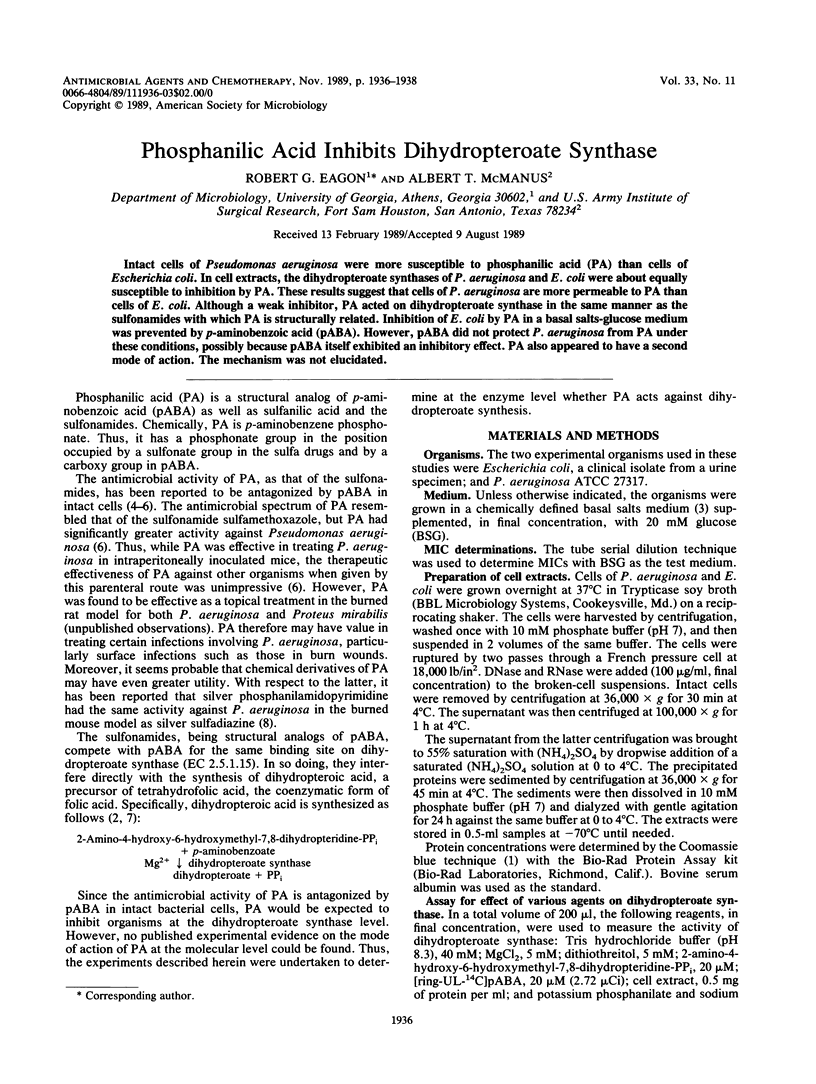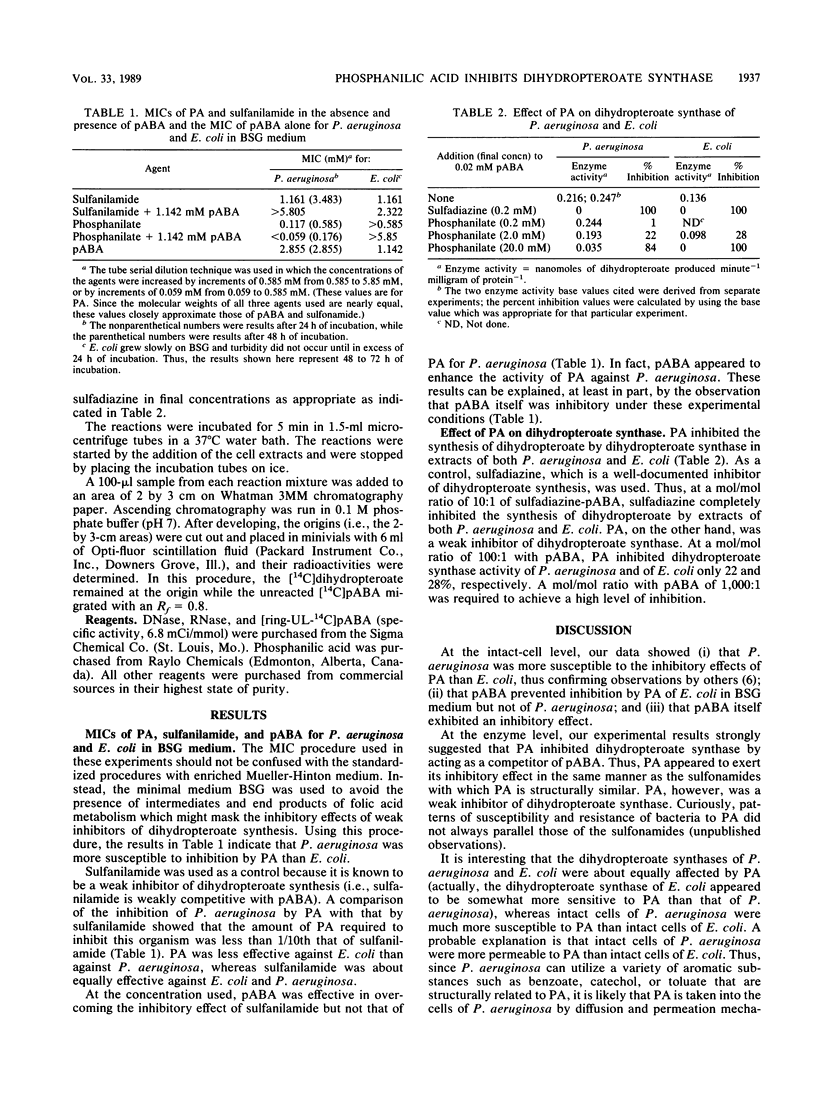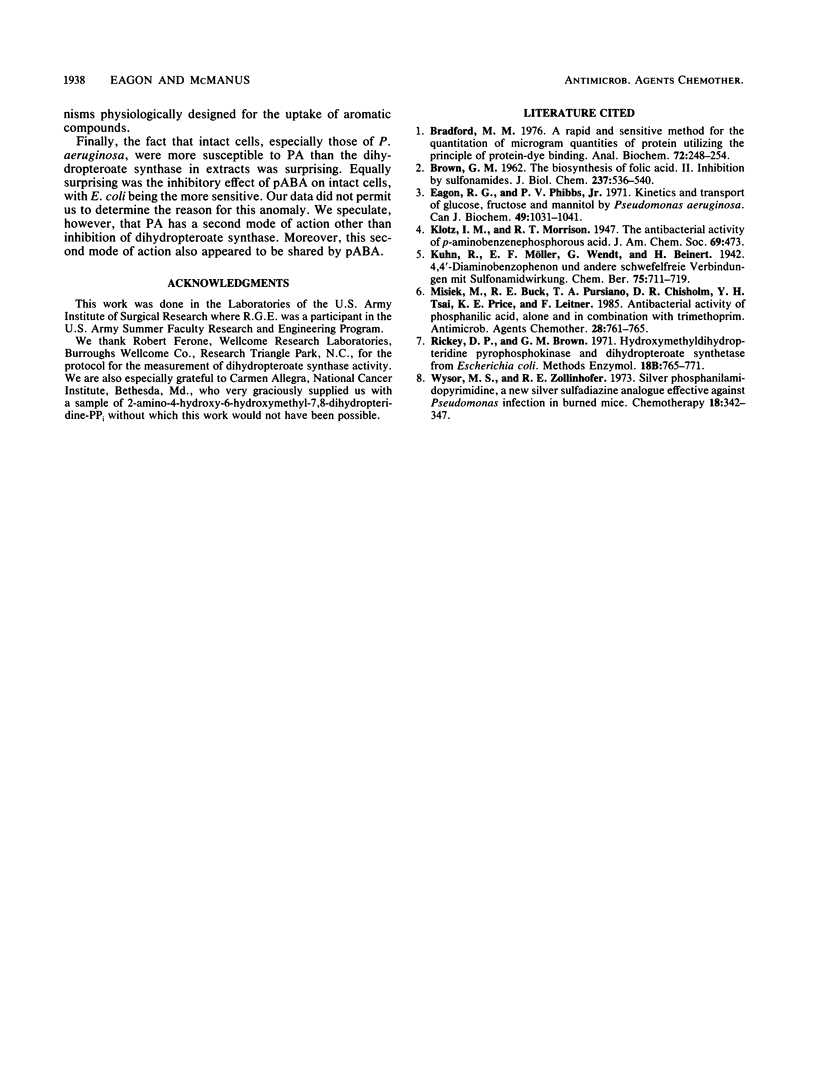Abstract
Intact cells of Pseudomonas aeruginosa were more susceptible to phosphanilic acid (PA) than cells of Escherichia coli. In cell extracts, the dihydropteroate synthases of P. aeruginosa and E. coli were about equally susceptible to inhibition by PA. These results suggest that cells of P. aeruginosa are more permeable to PA than cells of E. coli. Although a weak inhibitor, PA acted on dihydropteroate synthase in the same manner as the sulfonamides with which PA is structurally related. Inhibition of E. coli by PA in a basal salts-glucose medium was prevented by p-aminobenzoic acid (pABA). However, pABA did not protect P. aeruginosa from PA under these conditions, possibly because pABA itself exhibited an inhibitory effect. PA also appeared to have a second mode of action. The mechanism was not elucidated.
Full text
PDF


Selected References
These references are in PubMed. This may not be the complete list of references from this article.
- Bradford M. M. A rapid and sensitive method for the quantitation of microgram quantities of protein utilizing the principle of protein-dye binding. Anal Biochem. 1976 May 7;72:248–254. doi: 10.1016/0003-2697(76)90527-3. [DOI] [PubMed] [Google Scholar]
- Eagon R. G., Phibbs P. V., Jr Kinetics of transport of glucose, fructose, and mannitol by Pseudomonas aeruginosa. Can J Biochem. 1971 Sep;49(9):1031–1041. doi: 10.1139/o71-151. [DOI] [PubMed] [Google Scholar]
- Misiek M., Buck R. E., Pursiano T. A., Chisholm D. R., Tsai Y. H., Price K. E., Leitner F. Antibacterial activity of phosphanilic acid, alone and in combination with trimethoprim. Antimicrob Agents Chemother. 1985 Dec;28(6):761–765. doi: 10.1128/aac.28.6.761. [DOI] [PMC free article] [PubMed] [Google Scholar]
- Wysor M. S., Zollinhofer R. E. Silver phosphanilamidopyrimidine. A new silver sulfadiazine analogue effective against Pseudomonas infection in burned mice. Chemotherapy. 1973;18(6):342–347. doi: 10.1159/000221281. [DOI] [PubMed] [Google Scholar]


